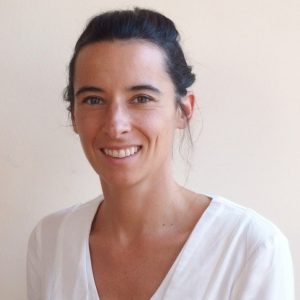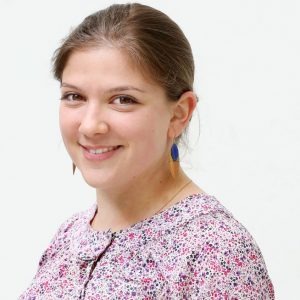March 4, 2019
By: Noémi Manco and Valérie Paulet
Mass crimes, remote locations, protection of victims and witnesses, procedural obstacles, outreach. Those are just some of the challenges inherent to universal jurisdiction cases. From gathering evidence to tracking down suspects, each step of the process is long, complex, often frustrating and sometimes downright dangerous. The legal world’s answer to those challenges? Joining forces.
The nature and scale of international crimes – such as genocide, crimes against humanity and war crimes – make them among the most complex to prosecute. These difficulties are multiplied when investigations or trials take place far away from where the crimes were committed. Be it for political, legal or security reasons, holding accountable alleged criminals may only be possible remotely: that is when universal jurisdiction kicks in.
Under this principle, states may or shall prosecute criminals present on their territory, regardless of the criminal’s nationality, where the crimes took place, or the victims’ location and nationality. Based on the concept that certain crimes endanger the very essence of mankind, this tool was developed to give power to the whole world to punish these crimes.
But universal jurisdiction comes with significant challenges. In some cases, prosecuting authorities are unable to enter the states where atrocities were committed; unstable contexts mean witnesses are hard to find and may be too afraid to testify; evidence may be hard to collect. Geographical distance places a large financial burden on the investigations.
An impossible task? Not quite. Around the world, a constellation of actors is joining forces against the odds to uphold universal jurisdiction.
Survivors, prosecutors, lawyers, investigators, diasporas, NGOs, victims’ associations and media are learning to work together, sometimes in unexpected ways, to offer victims the best chance of justice for the most serious crimes.
Investigating from the other side of the world
Crime scenes are the traditional starting point for any criminal investigation. But in universal jurisdiction cases, they are by definition situated abroad. Where to start fieldwork in a country one has never been to? Collaboration with local authorities “is as necessary as it is tricky”, according to Thijs Berger, a Prosecutor of the Dutch War Crimes Unit.
For the sake of fair trials, prosecuting authorities are bound by the same standards when they investigate abroad as when they build domestic cases: independence and confidentiality. Likewise, the standard of proof they will have to present in court remains unaltered by the tremendous challenges to investigating abroad.
An additional challenge is that these standards vary from one country to another, and there is sometimes no telling in advance where the trial will take place. “Where and when a trial opens is very dependent on the suspects’ movements, and the will of a state to initiate prosecution,” explains Emmanuelle Marchand, Senior Legal Counsel at Civitas Maxima, a Swiss NGO defending victims of war crimes and crimes against humanity. “As a result, we gather evidence without knowing which court will examine it, and the rules of admissibility of evidence may be widely different.”
Authorities, civil society, local communities
A crucial ally for national prosecuting authorities is civil society. NGOs have more flexibility to enter a country and document atrocities, insofar as a simple visa could let them in – as opposed to the official laissez-passer required by state institutions. They can therefore operate more freely, more swiftly, and more discreetly.
NGOs also have a more permanent presence in the field and direct contacts with victims and survivors. For these reasons, they can offer valuable contacts in the field. “We collaborate closely with local NGOs,” explains Emmanuelle Marchand. “They are the ones present in the country, interviewing victims and witnesses, identifying zones where crimes were committed. Without the locals’ knowledge, we would not know where to start.”
Tom Laitinen, a State Prosecutor in Finland, recalls for instance how an international NGO assisted his team in a Rwandan case: “They had conducted their own investigation on the same village where our suspect had acted during the genocide. We were able to talk to one of their researchers, who shared some information with us.”
The paper chase of finding witnesses
Because of the difficulty of accessing crime scenes, forensic evidence is often scarce in universal jurisdiction cases. Therefore, a case is often heavily reliant on witnesses’ statements. But both NGOs and prosecuting authorities acknowledge the difficulty of identifying and meeting with witnesses.
Once again, human connections are the answer: “There is a lot of calling around. You talk to one person, and they know somebody who knows somebody, who tells you ‘my wife’s cousin’s nephew used to be in that fighting faction’. If you are lucky enough to talk to that person, then maybe he will be an interesting witness,” says Thijs Berger.
According to human rights consultant Hélène Legeay: “Families of victims are often willing to speak, but they only have second-hand information. The story of a direct victim is a lot more compelling, unfortunately it is a lot harder to find them and convince them to talk.”
Often, the most unlikely sources provide the best information. Insiders – witnesses who may themselves have taken part in the crime – can provide valuable information on the internal organization of a criminal enterprise. Thijs Berger is all too aware of that, as he has seen a case crumble like a house of cards: “In a case relating to Afghanistan, we lacked insider witnesses who could make sense of a complicated military situation. We were able to establish that at least two fighting units were present on the crime scene. And the question was: which unit actually committed the crimes? We could not prove it in court. A crucial connection was lacking between the suspect and the crimes.” Unsurprisingly, insiders willing to collaborate are difficult to find, since they may end up incriminating themselves.
Hunting down the suspects themselves
In addition to all these investigative hurdles, there is also the tracking of the suspects themselves. The increasing permeability of frontiers has made movements easier and swifter than ever before for fleeing criminals. Locating them can be a needle-in-a-haystack task, as Eric Emeraux, Head of the French Central Office to fight crimes against humanity, genocides and war crimes, explains: “When we are looking for someone, we leave no stone unturned: we look at bank accounts, energy or telecommunications bills, interrogate hotels and hospitals in case the suspect checked in, search the database of airplane companies. We knock on every door, because one successful lead is all we need to get started.”
Yet even the most organized prosecuting authorities cannot operate alone. Immigration services, diasporas, intelligence agencies, and – once again – NGOs, are all crucial channels of information. “We never work alone,” explains Eric Emeraux. “We are immersed in a galaxy of other actors including NGOs, Europol, Interpol, Eurojust, etc. It’s all about collaboration and trust.”
The boom of social networks has also revolutionized this task. Joseph Breham is a French lawyer working on universal jurisdiction cases: “One of the suspects of a case we were working on had posted a picture of himself on Facebook, and the background buildings were looking remarkably like Paris. We had this picture authenticated to check whether he was indeed in the French capital.”
A narrow window of opportunity
Why is locating the suspect so crucial and delicate? Because in most cases, state authorities can only open a case when a suspect enters their territory. And sometimes, their passage can be limited to a simple transit through an airport: then speed is of essence. For NGOs, there is an additional hurdle: they do not have the power to open a case or arrest a suspect and must rely on national prosecuting authorities to do so.
“In some instances, we find out that a perpetrator will only be in town for a couple of days. In these cases, we work night and day in order to gather information and prepare a complaint up to standards that are necessary to trigger the opening of a criminal investigation,” says Benedict De Moerloose, Head of International Investigations and Litigation at TRIAL International.
Eric Emeraux agrees that universal jurisdiction relies on momentum, which is often unpredictable: “A case is like a living thing: it stalls for a while, then something moves and suddenly everything is moving fast! When it happens, you have to be ready or you may miss your chance.”
In the face of all these difficulties, it is permitted to ask: is it worth all the trouble? The answer from the legal world is an unequivocal yes. Firstly, because universal jurisdiction constitutes the only hope of justice for countless victims. And secondly, because tremendous successes – unimaginable just a few years ago – have been achieved. And every single case is not only a victory in itself: it also eases the way for many others, because it reinforces the belief that justice can – and must – triumph. “We owe it to the victims to do our utmost, but also to future generations,” concludes Eric Emeraux. “If impunity wins today, then sooner or later conflicts will re-emerge and new atrocities will be committed.”
This article was previously published by TRIAL International in “Evidentiary Challenges in Universal Jurisdiction Cases”, Universal Jurisdiction Annual Review 2019. TRIAL International is a non-governmental organization fighting impunity for international crimes and supporting victims in their quest for justice. This article can be referred to in this Journal as Noémi Manco and Valérie Paulet, “Building on shifting sands: evidentiary challenges in universal jurisdiction cases” (2019) 3 PKI Global Just J 44.
About the Authors
 Valérie Paulet is a Legal Consultant at TRIAL International, and became the coordinator of Trial Watch from August 2015. A qualified lawyer in France, she specialized in international criminal law and international humanitarian law. Previously, she worked in William Bourdon’s law firm in Paris, where she was in charge of universal jurisdiction cases, and at the United Nations international criminal tribunals.
Valérie Paulet is a Legal Consultant at TRIAL International, and became the coordinator of Trial Watch from August 2015. A qualified lawyer in France, she specialized in international criminal law and international humanitarian law. Previously, she worked in William Bourdon’s law firm in Paris, where she was in charge of universal jurisdiction cases, and at the United Nations international criminal tribunals.
 Noémi Manco is a Communications Officer at TRIAL International. Before that, she worked as a communications and campaigns officer at Ordre de Malte France in Paris (France), and interned at the Coalition for the International Criminal Court, Redress and Amnesty International.
Noémi Manco is a Communications Officer at TRIAL International. Before that, she worked as a communications and campaigns officer at Ordre de Malte France in Paris (France), and interned at the Coalition for the International Criminal Court, Redress and Amnesty International.
The Universal Jurisdiction Annual Review is TRIAL International’s main legal publication. It has been researched and written by Valérie Paulet, in collaboration with REDRESS, the European Center for Constitutional and Human Rights (ECCHR), the International Federation for Human Rights (FIDH) and the International Foundation Baltasar Garzón (FIBGAR). It benefited from the generous support of the City of Geneva, the Oak Foundation and the Taiwan Foundation for Democracy.